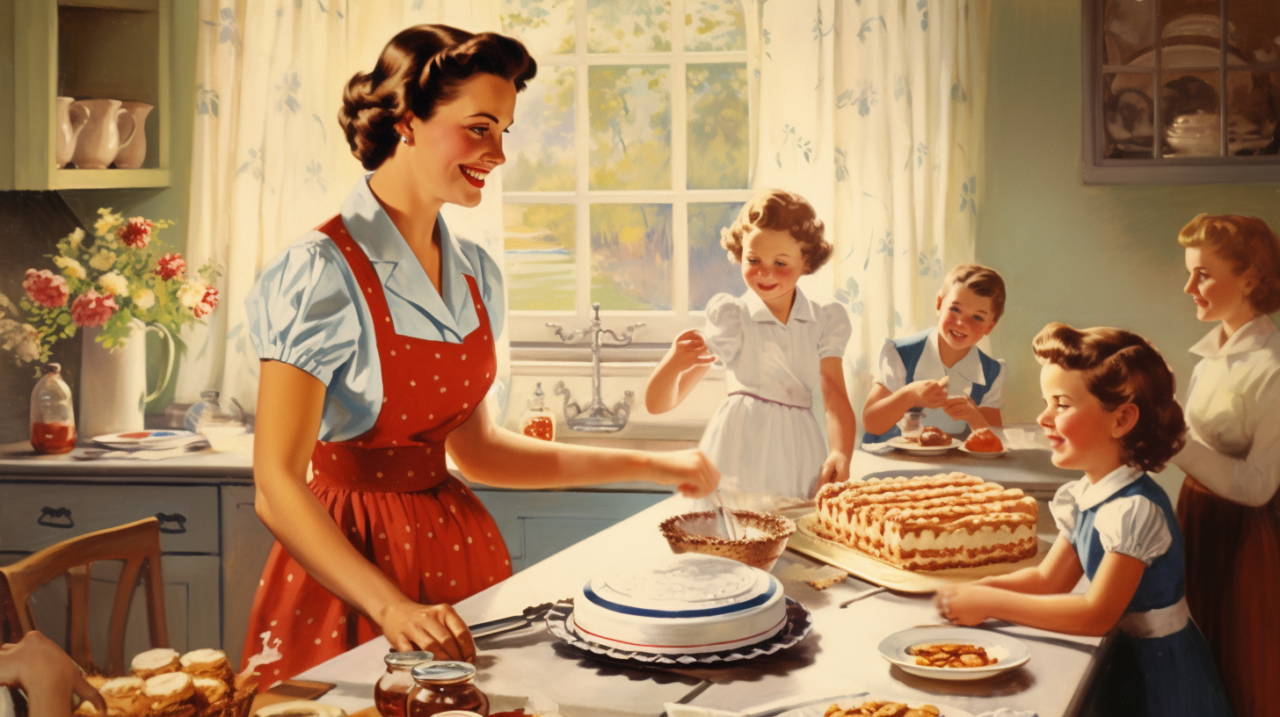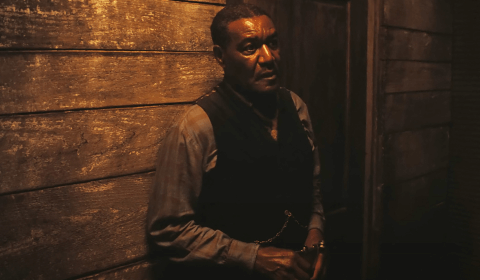One of the most popular tradwife influencers is a woman called Hannah Neeleman, with 8.1 million followers on her Instagram account @BallerinaFarm.
As the social media handle indicates, Hannah lives on a plot of farmland that she owns with her husband Daniel Neeleman, along with eight children, and a number of different farm animals. A scroll of her profile depicts the life of a homemaker who cultivates homegrown vegetables, milks cows, and bakes the day away.
That said, people who believe that these tradwives don’t have jobs have failed to notice the painfully obvious. Like any other influencer, the Neelmans are working extremely hard as content creators to capitalise on their ‘dream’ lifestyle.
So while one may cringe at the up and coming internet stars posing in head to toe Balenciaga’s at Paris Fashion Week, we should remember that the rural-living, modernity-rejecting Neelemans are also setting up their own tripod for a full day of filming, editing, and writing the so-sweet-you-could-almost-eat-it caption for online audiences.
On top of earning income from their digital content, the Neelmans sell fresh meat raised on their farm and pump out fresh designs for merch on their online shop, which offers kitchenware, checked aprons, branded oven mitts, cooking kits, and of course, Ballerina Farm branded baseball caps.
Social media, for someone with millions of followers, is not a hobby. Selling a niche lifestyle online is a full time job which requires hours and hours of behind the scenes work, planning, prepping, shooting, editing, promoting, and posting.
Not exactly escaping modern life, are we?
The hidden backstory
After a little internet digging, it was revealed that the husband of Ballerina Farms is the son of David Neeleman who founded JetBlue along with several other airlines.
Shortly after this discovery, people started noticing interesting details. The Neeleman kitchen centers around an Aga cast-iron stove which retails for at least $20,000 or more. The farm they now own was valued at $2.7 million before it was purchased by the Neelemans in 2018.
Some fans felt duped, as this backstory was never stated on any of the family members’ socials. Others remain nonplussed. The @BallerinaFarms Instagram bio simply states that the pair were ‘city-dwellers’ before leaving it all behind for a humbler life on a farm, despite being total rookies at country living.
For many, abandoning a job in the city in exchange for a slower, rural lifestyle may sound appealing. In fact, a growing number of young people are choosing to live in smaller towns specifically to avoid the always on hustle and grind culture that most capital cities normalize.
But – for the vast majority – the tradwife lifestyle is far out of reach unless you (or your trad-husband) are in a certain tax bracket. Like, the highest one. In many cases, it also requires subscribing to a strict belief system that could be branded as oppressive.
What’s up with 1950s values
The tradwife lifestyle is vastly different from being a stay at home mom.
Often, wives in these scenarios aren’t ‘choosing’ not to have a job. It is understood that they are not allowed to have a job unless it involves raising numerous children, doing housework, and putting their husbands’ wants above all else.
Interestingly, it’s emerged that tradwife culture shares similarities with the alt-right movement through the shared use of online hashtags like #ConservativeWomen, #FeminismSucks, #TwoGenders, and #DomesticDiscipline.
It’s no surprise then, that the majority of tradwife influencers do not just comprise of politically and socially conservative women, but of individuals who are noticeably and overwhelmingly white.
Tradwife life also has links to religious fundamentalism. The @BallerinaFarms family, for example, are Mormon. This religion requires that mothers to have not one, not two, but several children, which comes with a slew of its own ethical questions today.
Both Mormonism and tradwife values hold that women should emotionally and financially submit to their male partners. In some cases, tradwives must ask their husbands for permission before doing things like going to the store or grabbing coffee with a friend.
Estee Williams, a tradwife influencer, describes her role as a choice. Detailing how her mother struggled to balance home and work life as a single parent, Williams said she aspired to have a traditional lifestyle in which asking for permission to do basic things is the ‘respectful thing to do’.
Explaining why this lifestyle has become so desired today isn’t exactly easy. But many believe the endless choice, chaos, and ever-changing nature of our current world is pushing more women towards wanting to live as ‘homemakers,’ the creators of a refuge from it all.
It’s interesting to hear the motivations behind those who have subscribed to a tradwife lifestyle. The ideology is so niche in today’s society that it will naturally draw attention and interest, making it an easy cash grab if you’re literate in social media marketing.
That said, it seems that users are once again taking what they see at face value, glossing over the important details, and becoming disillusioned with how realistic adopting such a lifestyle is.
Whether you think tradwife life sounds appealing or not, it’s important to recognise that it requires first having immense privilege, serious sacrifice second, and above all… a lot of work.






















